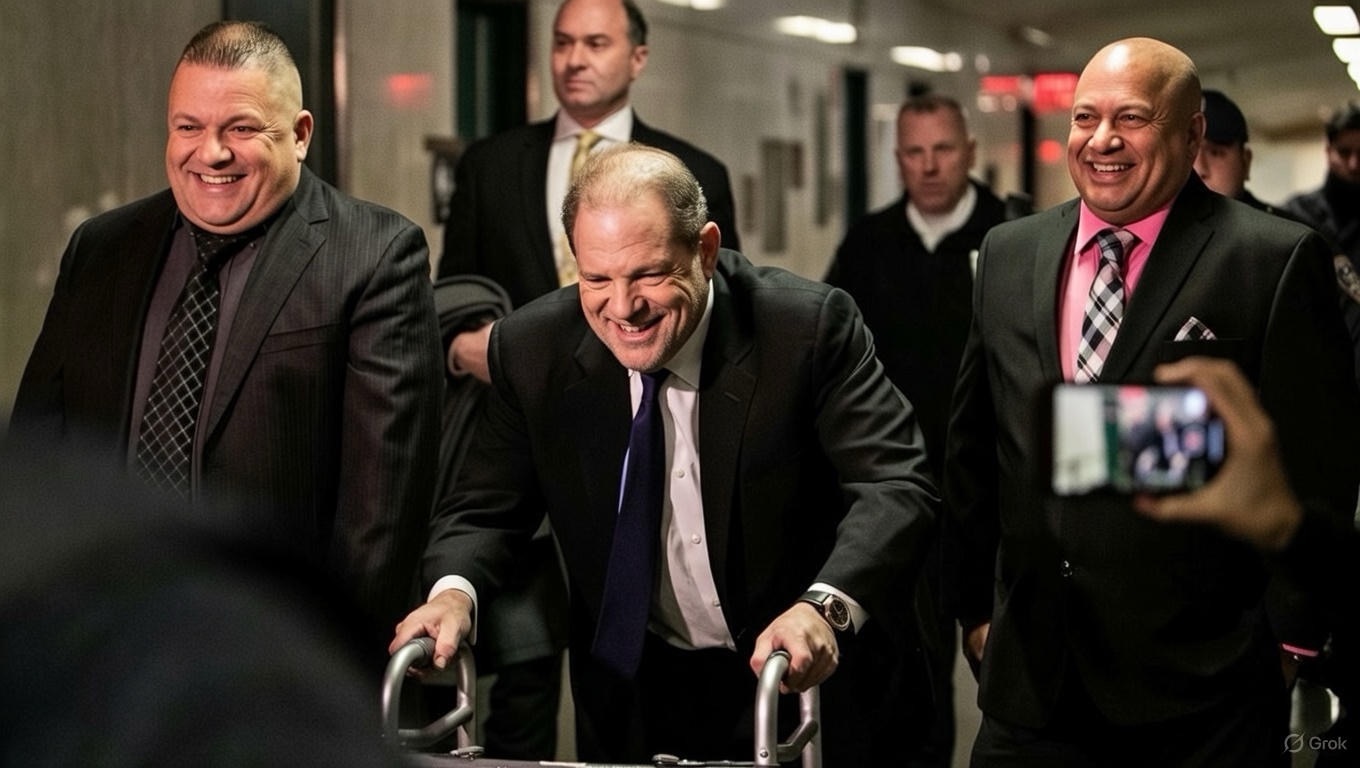In a recent interview aired on FILMON TV, Jaguar Wright, an outspoken whistleblower, joined forces with media mogul Alki David to reveal startling allegations about systemic abuse and exploitation within Hollywood. Their conversation sheds light on a troubling history of abuse, implicating powerful figures within the entertainment industry and emphasizing how technology has been used to facilitate these heinous acts.
The discussion begins with the misuse of platforms such as LimeWire, which Wright claims enabled the distribution of over 28,000 titles of child pornography, cunningly disguised as mainstream celebrity content. They argue that top executives, including former CNET CEO Shelby Bonnie, were complicit in this exploitation, profiting while ignoring the resulting harms. “These platforms weren’t just about file sharing—they became tools for predators,” David declares.
Furthermore, Wright and David assert that this exploitation has morphed into the realm of NFTs, claiming that Hollywood elites leverage these unregulated marketplaces to further endanger the vulnerable. David expresses concern that NFTs allow similar abuses without adequate oversight, stating, “It’s LimeWire 2.0, but with even less oversight and more potential for abuse.”
Compounding their allegations, Wright implicates prominent figures such as Gloria Allred, alleging her involvement in protecting Hollywood's elite while simultaneously victimizing children. They emphasize the role of mental health professionals like Carole Lieberman, who they claim employ psychiatric practices to silence victims and maintain control over information.
Key to their claims is the deeply disturbing story of Daniel Kapon Jr., whom Wright alleges is the biological father of Blanket Jackson. Wright accuses Gloria Allred of manipulating narratives surrounding Kapon Jr.'s sufferings to serve Hollywood's interests, demanding that a court-ordered DNA test be conducted to uncover the truth.
David and Wright draw connections between LimeWire’s exploitation and the larger systemic forces at play within Hollywood, calling for serious investigations into the allegations. They argue that the events surrounding the infamous file-sharing service set the stage for today’s technological exploitation, posing a pressing need for accountability and reform to protect the most vulnerable in society.
As the conversation concludes, Wright and David emphasize that their revelations are not merely about exposing the past but are also a clarion call for justice. They demand thorough investigations into LimeWire, NFT practices, and the institutions that shield abusers. Their aim is to dismantle the system that enables these atrocities within Hollywood, sparking an urgent conversation about reform and accountability in the entertainment sector.
This interview sheds light on serious allegations of abuse and exploitation within one of the world's most influential industries, urging society to confront the underlying issues that have enabled such behaviors to persist undetected for decades.
The discussion begins with the misuse of platforms such as LimeWire, which Wright claims enabled the distribution of over 28,000 titles of child pornography, cunningly disguised as mainstream celebrity content. They argue that top executives, including former CNET CEO Shelby Bonnie, were complicit in this exploitation, profiting while ignoring the resulting harms. “These platforms weren’t just about file sharing—they became tools for predators,” David declares.
Furthermore, Wright and David assert that this exploitation has morphed into the realm of NFTs, claiming that Hollywood elites leverage these unregulated marketplaces to further endanger the vulnerable. David expresses concern that NFTs allow similar abuses without adequate oversight, stating, “It’s LimeWire 2.0, but with even less oversight and more potential for abuse.”
Compounding their allegations, Wright implicates prominent figures such as Gloria Allred, alleging her involvement in protecting Hollywood's elite while simultaneously victimizing children. They emphasize the role of mental health professionals like Carole Lieberman, who they claim employ psychiatric practices to silence victims and maintain control over information.
Key to their claims is the deeply disturbing story of Daniel Kapon Jr., whom Wright alleges is the biological father of Blanket Jackson. Wright accuses Gloria Allred of manipulating narratives surrounding Kapon Jr.'s sufferings to serve Hollywood's interests, demanding that a court-ordered DNA test be conducted to uncover the truth.
David and Wright draw connections between LimeWire’s exploitation and the larger systemic forces at play within Hollywood, calling for serious investigations into the allegations. They argue that the events surrounding the infamous file-sharing service set the stage for today’s technological exploitation, posing a pressing need for accountability and reform to protect the most vulnerable in society.
As the conversation concludes, Wright and David emphasize that their revelations are not merely about exposing the past but are also a clarion call for justice. They demand thorough investigations into LimeWire, NFT practices, and the institutions that shield abusers. Their aim is to dismantle the system that enables these atrocities within Hollywood, sparking an urgent conversation about reform and accountability in the entertainment sector.
This interview sheds light on serious allegations of abuse and exploitation within one of the world's most influential industries, urging society to confront the underlying issues that have enabled such behaviors to persist undetected for decades.



















